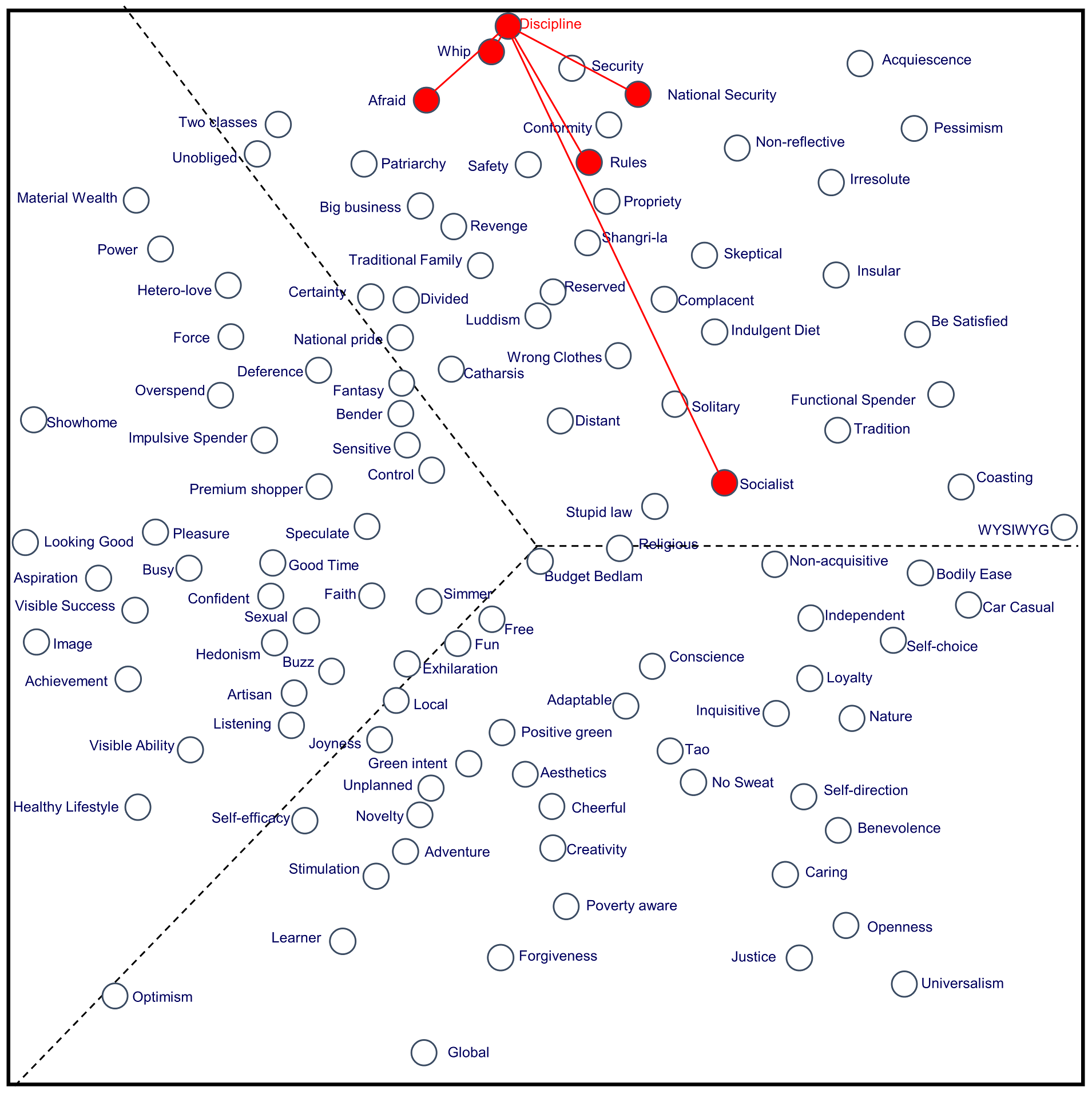

DISCIPLINE
 |
I believe that strict discipline is in a child's best interests.
I think that criminals should face severe sentences to deter them from offending again.
Espousers of this Attribute see discipline as a mechanism to help ensure safety and security. This is particularly so in the case of children – enforced discipline teaches them important lessons about staying out of trouble and out of harm’s way.
Discipline espousers’ attitudes towards crime and punishment might be mistaken for a desire to exact revenge on perpetrators. This is especially so with their views on appropriate punishment for sex crimes and crimes against children, where they would be content to see corporal, if not capital punishment used.
To think of revenge as a motivation would be a mistake – rather it is a desire to keep themselves, their loved ones and society as a whole safe. The purpose of punishment is to teach criminals that their behaviour is unacceptable and wrong. Punishment’s end-point should generally be contrition, remorse and rehabilitation. If you have to get tough to get that, then so be it. Those that feel that capital punishment should be an option generally feel that there are some crimes that simply go too far beyond forgiveness – but still revenge is not the motivation.
As further evidence that safety is at the core of Discipline espousal, more than half of espousers are very concerned about national security – threats from inside as well as outside the country. More than half of them would strongly agree that there are too many foreigners in the country; and almost two thirds would agree to some extent. “Foreigners” is a proxy for “the other”, “people different than us” – the threat of the unknown or unfathomable.
Discipline espousers, unsurprisingly, believe that “the rules” should be followed at all times. There is really no excuse for breaking them. If the sign says “No ball games”, it means what it says and should be adhered to. They understand that rules are for a purpose – one other than to just be a nuisance and stop you doing what you want, when you want. Rules are there to protect – people, property and social order.
Discipline espousers feel that there is too much violence and lawlessness in society. Many of them think that the world would be a better place if we looked more to the past than the future (or the present). Many feel afraid to walk alone at night, even in their own neighbourhood. As reflected time after time in National Crime statistics, this fear is far more prevalent amongst women than men (ratio about 3:2).
Many espousers feel disaffected by the systemic inequalities of society. About half of espousers think that there is too much power – and wealth – in the hands of too few individuals. The old adage that “money talks” robs them of much hope that things will get better any time soon.
Summarising, the key thing to grasp is that Discipline espousal is not about revenge or punishment for punishment’s sake – instead, it stems from a nagging fear of what might be around the corner and a need to feel safe and secure in a troubled world.
Using DisciplineDemographic Skews: 1) Over-indexed: 65+, down-market. 2) Under-indexed: Under 35, up-market. Discipline espousers also espouse other Attributes. The top five most highly correlated Attributes of Discipline espousers are, in order of the strength of relationship: 1) Whip In total those who espouse Discipline also over-index significantly on 28 other Attributes. |
|
If "Discipline" (or the associated attributes) are important to you and you would like to delve more deeply, contact us at mail@cultdyn.co.uk
